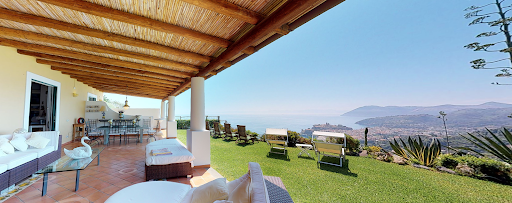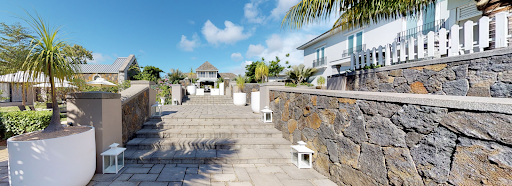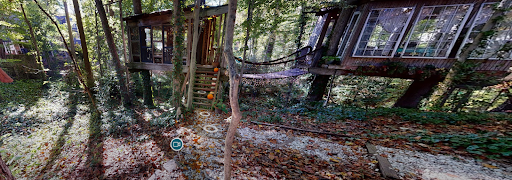Exterior Real Estate Photography: Benefits, Challenges, and Tips to Help Take the Best Photos
Exterior real estate photography tips to overcome challenges and make photos stand out
The National Association of Realtors® 2023 Home Buyers and Sellers Generational Trends Report found that 96% of home buyers use the Internet to search for homes. While all age groups value photos as the most helpful feature on listings, 49% of prospective buyers' next step when viewing a listing online is to participate in a virtual walkthrough. Forty-two percent of all potential buyers end up contacting the agent, and 35% visit the exterior home and neighborhood without setting foot in the residence itself.
Professional real estate photographers and agents must partner to make property listings attractive and as immersive as possible to maximize buyer interest and shorten the listing's time on the market. Crafting that type of interest begins with exterior real estate photography.
4 benefits of including exterior real estate photographs in your listing
Real estate photographs serve as the buyer's first impression of the property. Exterior real estate photographs push buyers to visualize the holistic experience of living on the property (versus just inside the residence).
While these four benefits culminate in elevating the listing's overall appeal, real estate photographers consider each one as they approach how to best capture these elements in their exterior photos.
Highlight incredible views to support a high asking price
Aerial or drone photography is perfect for capturing a property from an elevated or vast distance. The distance provides a holistic view of the property, which is the foundation for agents and photographers to dig into and highlight the property's elements, like a stunning view.

The backyard and accompanying view at Casa Nostra, Sicily
Once buyers see the views, they'll understand why the listing commands its asking price.
Provide context for better buyer-property fit
Exterior real estate photographs provide a sense of the neighborhood, and the listing needs to attract buyers who will fit right in and envision themselves interacting with the community.

Exterior walkway at the Radisson Blu Azuri Resort & Spa
Residential condos share many amenities and are close together, which is essential to highlight so buyers can gain a sense of community life and interactions with neighbors. If the listing shows how close a school or park is to the residence, families with children will invest more thought into checking out the property in person. If the homeowner keeps a garden in the backyard, showing and describing it will motivate prospective buyers with green thumbs to check out the surrounding area.
Drive the listing's narrative and unique qualities
Real estate exterior photography provides the visuals for the property's story from multiple angles. When a listing highlights a property's unique fixtures, potential buyers will interact with the listing longer by clicking on more photos.

Airbnb's most popular treehouse
Real estate photographers can capture properties, like Airbnb's most popular treehouse, from varying times of day to showcase what an entire day-to-night experience entails in terms of natural light and ambiance.
Boost the listing's marketability (and yours, too)
Real estate marketing tools, like social media platforms and realtors' websites, require visual assets to attract homeowners and potential buyers. Professional real estate photography benefits listings and realtors by showing substantial investment and care taken into consideration to show a property. Strong real estate visuals help shape potential buyers' expectations regarding interactions with you and the current homeowners when showing the home in person.
4 exterior real estate photography challenges and how to overcome them
Post-processing techniques can help with many exterior shots, but real estate photographers want to accurately represent the property and remain as loyal to its natural, everyday appearance as possible. Of course, there will still be challenges that post-processing and Photoshop cannot avoid entirely. But when real estate photographers and agents collaborate and plan, they can ensure the property looks incredible.
Here are the four most common challenges with exterior real estate photos—and the exterior real estate photography tips to help you find a solution.
Weather
Weather is the most significant challenge for any professional exterior real estate photographer. To get the best real estate photo, regardless of whether it's of the exterior or interior, you want as much natural light as possible.
Diffused lighting occurs if it's overcast. While soft lighting minimizes dark shadows, it affects how you can highlight the property's exterior selling points, such as a breathtaking view or a perfect summer patio.
Solutions: Reschedule or Photoshop
Rescheduling the photoshoot is the primary solution for inclement weather. If the photoshoot must happen that day, you can wait for the weather out, as the sunlight may break through the clouds and offer a soft, serene mood for the property and neighborhood.
Exterior real estate photographers can also lean into their post-processing skills. Some editing and Photoshop platforms provide sky replacement. If you want to lean into the natural landscape, you can also shoot the landscape in brackets, like the sky, house, and pathway, then stitch the photo together in HDR.
Lighting
Lighting is like the Goldilocks tale for quality images of any property: Too overcast, and you'll spend hours in Photoshop. Too bright, and you have to contend with harsh shadows.
Solutions: Shoot during "golden hour"
Complete as many exterior shots during "golden hour"—about 1-2 hours after sunrise and before sunset—to make the most of warm tones and soft shadows. If the photoshoot is all day, you can begin with any exterior photos, spend the late afternoon and early evening shooting any interior photography, and wrap up with the rest of the outdoors to show the house's mood throughout the day.
If you have to work in direct sunlight, use a diffuser to redistribute and even out the spread of light, which reduces contrast and shadows.
Landscaping and unsightly objects
Unkept yards, dying grass, dilapidated fences, and objects cause an eyesore. Neighbors may also have a few tree branches coming into the yard, which may cause some dark shadows. If the property overlooks the construction of a new building or is next to an older property, you should dampen its appearance in photos.
Solutions: Declutter and focus on angles
Typically, real estate agents partner with the homeowner to make the entire property presentable from the inside out. Schedule a walkthrough before the photo shoot to identify potential areas to declutter or shape up.
Real estate photographers can frame and angle exterior shots to showcase selling points of the home, such as the potential to build a garden or architectural features that bring the property's history to life. Agents can also add notes about the property's potential and neighborhood to excite prospective buyers about what they can envision for their potential new home.
You can also retouch any elements in your real estate photo editing software.
Limited photoshoot time
Despite the preparation and considerations for external factors like weather, some homeowners can only provide a limited time to shoot the property due to scheduling or the potential last-minute emergency.
Solutions: Create a must-have shot checklist
Collaborate on a checklist for must-have shots. Ideally, this includes the property's front, back, and sides and potentially any interior photography you may be responsible for capturing. Ensure you can tour the property to plan for any angles to maximize curb appeal. If necessary, ask if you can bring and set up any potential equipment the day before the photoshoot to ensure you can quickly jump into shooting the property.
How to get the best exterior visual assets for your property
While high shutter speed and ISO values help capture exterior real estate photography in low light or less-than-ideal conditions, real estate photographers must consider how much work and time it'll take to edit those photos to their standards.
Matterport offers the ideal platform and workflow for taking quality images—especially exterior real estate photos—and immersive 3D tours of the entire property from the inside out. All you need is a Matterport camera, the Matterport platform, and these helpful exterior real estate photography tips to successfully capture a property.
Capture quality images and create a digital twin with the Matterport Pro3 camera
The Pro3 camera creates high-quality exterior images and digital twins for both indoor and outdoor spaces with ease, regardless of the time of day, thanks to its LiDAR sensor and 12-elemental lens.
The camera captures data up to 100 meters away, making for a powerful experience compared to other high-quality, digital single-lens reflex (DSLR) cameras. Since the camera captures each scan in less than 20 seconds per sweep, you can quickly check for alignment issues alongside any quality concerns. But those concerns will be few and far between, as the custom 20MP sensor covers an ultra-wide angle to produce life-like color in 2D photos and immersive, accurate digital twins.
Ready to practice these exterior real estate photography tips with a Matterport camera? Sign up for a Matterport account that will help make your real estate exterior photos leap off the listing and allow you to build digital twins that not only help you expand your real estate photography offerings but gain more valuable partnerships with real estate agents today.
Want to know how to set the price of your services? Check out our detailed (and regularly updated) article to find out how much real estate photography costs.
